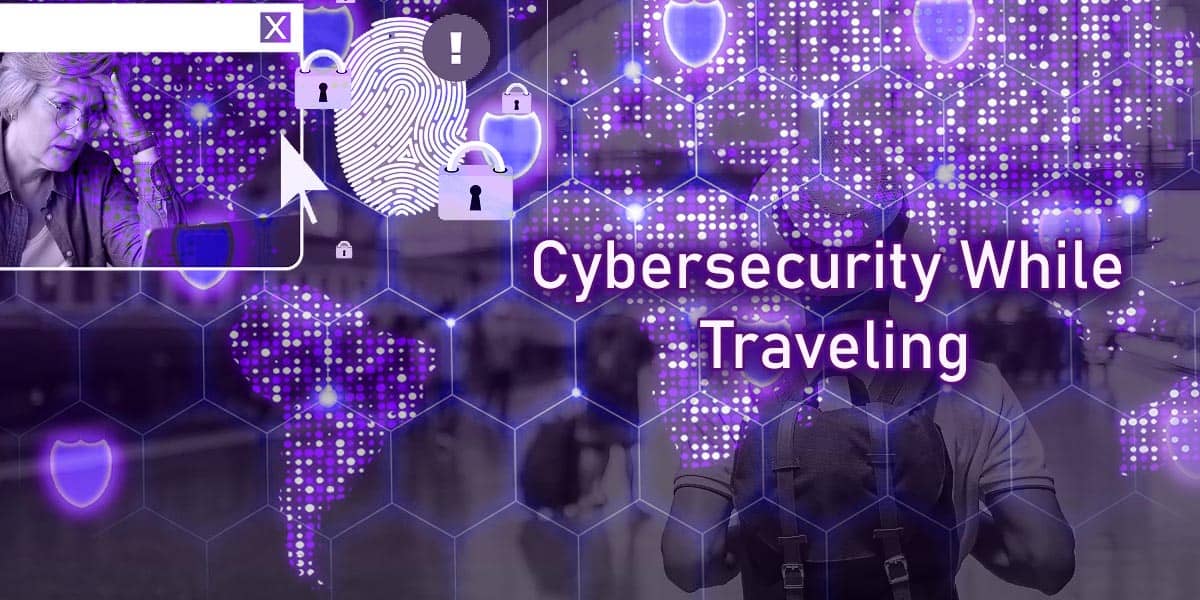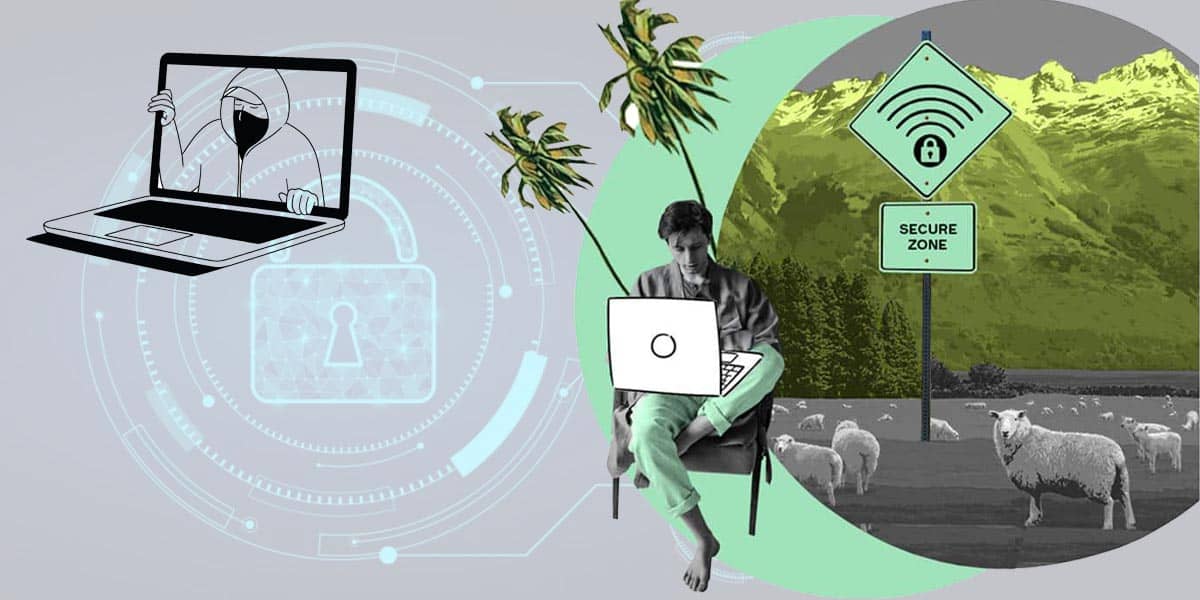Cybersecurity While Traveling: Protecting your digital identity and sensitive information

Cybersecurity While Traveling: Protecting your digital identity and sensitive information
In an increasingly connected world, it is crucial to prioritize cybersecurity while traveling to protect your digital identity and sensitive information. For business or pleasure, travelers are subject to cyber dangers such as identity theft, data breaches, and online fraud. Implementing a few essential cybersecurity practices can mitigate these risks and ensure a safe digital experience while on the road. This article will provide a comprehensive guide on cybersecurity while traveling, focusing on protecting your digital identity and sensitive information.
index
ToggleSecure Your Devices
- Before your vacation, ensure all your gadgets, including smartphones, tablets, and laptops, have the most recent operating system updates and security patches. Update your apps to the latest versions as well.
- Use strong, unique passwords: Make secure passwords for all your accounts by combining upper and lowercase letters, numbers, and symbols. Use a reputable password manager to store and manage your passwords securely.
- Enable two-factor authentication (2FA): Set up two-factor authentication for your email, social media, and banking accounts. It adds an extra layer of security by requiring a verification code and your password when logging in.
Secure Internet Connections
- Avoid public Wi-Fi networks: Public Wi-Fi networks in hotels, cafés, and airports are frequently vulnerable to hacking. Use your mobile data or a virtual private network (VPN) for safe internet access.
- Use a reputable VPN: If you must use public Wi-Fi, encrypt your internet connection using a trustworthy VPN provider. It ensures that your online activities and sensitive information remain private and protected from potential eavesdroppers.
- Verify Wi-Fi network names: Be cautious when connecting to public Wi-Fi networks. Verify the network name with the establishment’s staff to ensure you connect to the legitimate network.
Be Cautious with Online Activities
- Use secure websites: When conducting online transactions or accessing sensitive accounts, ensure the websites you visit have “https://” in the URL. The “s” indicates that the connection is encrypted and secure.
- Avoid suspicious links and emails: Be wary of clicking on links or opening attachments from unfamiliar or suspicious emails, as they may contain malware or phishing attempts. Verify the legitimacy of emails before taking any action.
- Disable automatic Wi-Fi connections: Turn off the automatic connection feature on your devices to prevent them from connecting to unknown and potentially malicious networks without your knowledge.
Protect Your Data
- Enable device lock features: Set up passcodes, PINs, or biometric locks (such as fingerprints or face recognition) on your devices. It provides additional security if your device is lost or stolen.
- Back up your data: Regularly back up your important data and files to a secure cloud storage service or an external hard drive. It assures that even if your device is compromised, you can still access and restore your data.
- Be cautious while sharing personal information: Avoid posting sensitive personal information on public platforms or with strangers you encounter while traveling, such as your full address or trip itinerary.
Monitor Financial Transactions
- Check account statements regularly: Keep a close eye on your bank and credit card statements while traveling. Report any unauthorized transactions or suspicious activities to your financial institution immediately.
- Use credit cards instead of debit cards: Credit cards, on average, provide stronger fraud protection than debit cards. Credit cards offer more options for dispute resolution and liability protection in case of fraudulent charges.
Secure Physical Documents and Devices
- Use a travel wallet or RFID-blocking sleeves: Carry your passport, credit cards, and other important documents in a secure travel wallet or use RFID-blocking sleeves to prevent unauthorized scanning of sensitive information.
- Lock up physical devices: Utilize hotel safes or secure lockers to store your devices, passports, and other valuable items when not carrying them. It provides an additional layer of protection against theft.
Secure Cloud Storage
- Encrypt your data: Before uploading sensitive files or documents to cloud storage, encrypt them using reliable encryption software or tools. It ensures that even if unauthorized access occurs, your data remains protected.
- Enable two-step verification: To provide extra protection, enable two-step verification for your cloud storage accounts. When signing in, you must normally input a verification number delivered to your mobile device or email.
- Limit access permissions: Regularly review and manage access permissions for your cloud storage folders and files. Only grant access to trusted individuals or devices and remove access for unnecessary parties.
Disable Automatic Bluetooth Connections
- Turn off Bluetooth when not in use: Turn it off when you are not actively utilizing Bluetooth on your devices. Cybercriminals may use Bluetooth flaws to obtain unauthorized access or harvest personal information from your devices.
Update Privacy Settings on Social Media
- Review privacy settings: To limit access to your personal information and postings, change the privacy settings on your social network accounts. Limit the visibility of your profile, posts, and location information to trusted contacts.
- Avoid sharing travel plans in real-time: Avoid publishing your specific trip plans and presenting your location on social media. Before posting about it, please wait until you have left a location to avoid advertising your absence to potential criminals.
Be Wary of Public Computers and Wi-Fi
- Avoid using public computers for sensitive activities: Public computers, such as those in internet cafes or hotel business centers, may not be secure. Avoid accessing sensitive accounts or conducting financial transactions on these devices.
- Use your USB cable: If you need to charge your device at a public charging station, use a USB cable attached to a power outlet rather than directly connecting to public USB ports. It guards against potential data theft and virus infestations.
Stay Updated on Travel Scams and Alerts
- Research common travel scams: Familiarize yourself with common travel scams specific to your destination. Stay informed about the latest techniques scammers use to target travelers, such as fake Wi-Fi networks, fraudulent tour operators, or credit card skimming devices.
- Subscribe to travel advisories: Stay updated with travel advisories and warnings issued by your government or reputable travel organizations. These alerts provide valuable information regarding cybersecurity threats, scams, or other safety concerns in specific destinations.
Conclusion
Maintaining cybersecurity while traveling is crucial to protect your digital identity and sensitive information from cyber threats. By following these comprehensive tips, including securing your devices, using secure internet connections, being cautious with online activities, protecting your data, and monitoring financial transactions, you can enjoy a safe and worry-free digital experience during your travels. Stay vigilant, practice good cybersecurity habits, and prioritize digital security to ensure a memorable and secure trip.
Recent Posts
Contact Us
+1 437 499 4559










